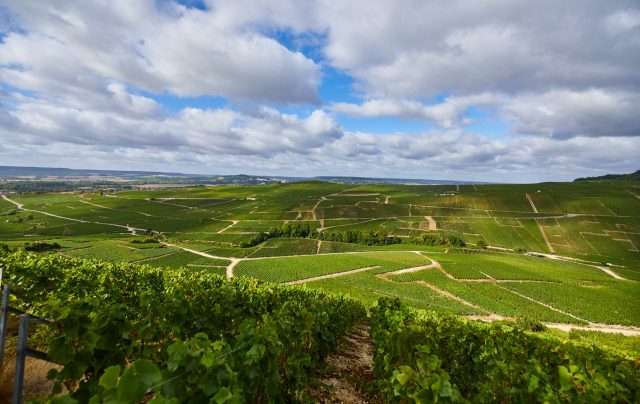Champagne Henriot utilises AI to drive viticulture
Maison Henriot has adopted artificial intelligence (AI) to better understand the viticulture of its vineyards in the Montagne de Reims and the Côte des Blancs.

The cradle of some of the finest sparkling wines in the world, the Champagne region, boasts a diversity of terroirs, including varying exposures, slopes, and soil types that enhance the richness of its vineyards. For Maison Henriot, showcasing the region’s beauty through its Champagnes has been the backbone of the estate since it was founded in 1808 by Apolline Henriot.
Since Apolline, several generations of the Henriot family have received training as agricultural engineers. The winery has focused on understanding the unique soils of its vineyards located in the Montagne de Reims, specifically in Verzy, Verzenay, and Mailly-Champagne, as well as in Avize, Le Mesnil-sur-Oger, and Chouilly in the Côte des Blancs since the 1920s by initiating The Soil Knowledge Project. Today, this mission continues under the leadership of cellar master Alice Tétienne, who utilises a diversity of crus to craft ‘generous and complex’ wines of Champagne.
In 2020, Tétienne initiated and coordinated the launch of Maison Henriot’s Alliance Terroirs Project, which is described as a commitment to preserving the vine, promoting biodiversity, and protecting the environment. The project is built on three key pillars: a deep understanding of the terroirs, adapting viticultural practices to suit each terroir, and ensuring the sustainability of Champagne amid climate challenges. The initiative’s goal is to reduce the environmental impact of viticulture while engaging the entire sector. As a result of the project, the Henriot vineyards are now certified as HVE (High Environmental Value) and VDC (Sustainable Viticulture in Champagne), and began the certification process of transforming into organic viticulture in 2021, with organic label granted in January 2025.
AI in viticulture
As part of a process of continuous improvement and as a response to climate challenges, Maison Henriot has embraced AI to integrate environmentally friendly practices into its operations. AI has emerged as an essential tool for precision viticulture, helping to address these challenges effectively. By utilising cameras mounted on tractors and drones to analyse the soil and vines, Henriot is able to collect and interpret data with precision. This technology has resulted in reduced vineyard interventions, lower input usage, and earlier detection of fungal diseases such as downy mildew and other diebacks such as Esca.
Tétienne says: “I have been entrusted with perpetuating the soul of Maison Henriot through its Champagnes and their signature. The world is changing fast, in terms of both our society and our environment. It is our duty to integrate these changes while respecting this primary objective.”
The technology utilises sensors mounted on tractors to scan parcels of land and analyse soil characteristics such as texture, water content, and organic matter richness. This information is presented in the form of maps, highlighting key indicators that aid in understanding the soil and determining the best practices for each plot. Additionally, aerial analyses are performed using sensors on the tractors or drones to evaluate vine growth, leaf surface characteristics, vigour, photosynthetic potential, and pest pressure.
For Maison Henriot, AI is vital in this approach, allowing for accurate assessments of the terroir by considering soil, climate, vines, and their interactions.
Soil mapping is conducted in two ways: first, by measuring soil depth and texture using conductivity on a black-and-white scale; and second, through a coloured map that displays infrared reflectance, which helps map the amount of organic matter present throughout the vineyards. In a more close-up, AI can closely identify vine health and specific aspects of individual vines, such as necrotic leaves.
According to Henriot, the use of AI-generated indicators, alongside field and lab analyses, offers essential support for decision-making. These indicators help guide important choices related to plant material, organic matter inputs, soil management, cover crops, and vineyard management – resulting in more sustainable Champagnes.
Maison Henriot has chosen to utilise AI to tackle climate change challenges while reducing its environmental footprint and preserving the high quality needed for creating exceptional wines.
Related news
The UK’s Definitive Champagne Tasting returns to London in April
Why Champagne performed better in 2025 than the figures suggest
Alice Tétienne steers Champagne Henriot to a sustainable future
